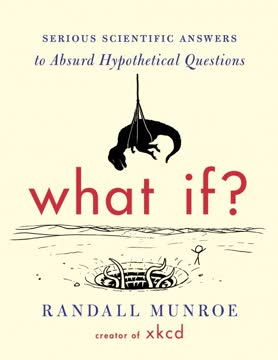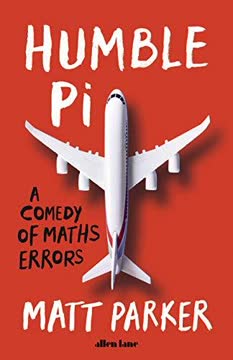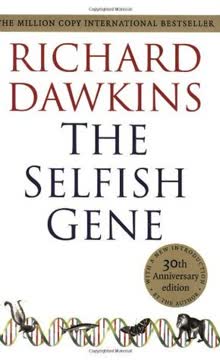Key Takeaways
1. The media often misrepresents science, creating sensationalized stories
"Science stories generally fall into one of three categories: the wacky stories, the 'breakthrough' stories, and the 'scare' stories. Each undermines and distorts science in its own idiosyncratic way."
Misrepresentation of science in media is a pervasive issue. Journalists, often lacking scientific background, tend to oversimplify complex research, cherry-pick sensational findings, and ignore crucial context. This leads to:
- Wacky stories: Highlighting bizarre or trivial research out of context
- Breakthrough stories: Overstating the significance of preliminary findings
- Scare stories: Exaggerating risks and ignoring balanced scientific consensus
The result is a distorted public perception of science, where groundbreaking discoveries seem to happen daily, and every new study is a potential threat or miracle cure. This sensationalism undermines public trust in scientific institutions and can lead to harmful decision-making based on misinformation.
2. Understanding statistics and research methods is crucial for critical thinking
"Natural frequencies are readily understandable, because instead of using probabilities, or percentages, or anything even slightly technical or difficult, they use concrete numbers, just like the ones you use every day to check if you've lost a kid on a coach trip, or got the right change in a shop."
Statistical literacy is essential for navigating the modern world of information. Key concepts include:
- Relative vs. absolute risk: Understanding the difference between a 50% increase in a small risk and a 2% increase in overall risk
- Natural frequencies: Presenting data in easily understandable formats (e.g., "2 out of 100 people" instead of "2%")
- P-values and statistical significance: Recognizing that not all "statistically significant" findings are practically important
- Correlation vs. causation: Distinguishing between factors that are merely associated and those that have a causal relationship
By grasping these concepts, individuals can better evaluate claims made in media, advertisements, and even scientific papers, leading to more informed decision-making and a healthier skepticism towards sensational headlines.
3. Alternative medicine and nutritionism often lack scientific evidence
"There are huge numbers of medical academic articles published so far, and 5,000 journals are published every month. Many of these articles will contain contradictory claims: picking out what's relevant – and what's not – is a gargantuan task."
Pseudoscience in healthcare is a significant problem. Alternative medicine and nutritionism often rely on:
- Cherry-picking: Selecting only studies that support their claims while ignoring contradictory evidence
- Anecdotal evidence: Prioritizing personal stories over rigorous scientific studies
- Appeal to nature: Assuming "natural" remedies are inherently safer or more effective
- Misinterpretation of preliminary research: Drawing sweeping conclusions from small, often flawed studies
These practices can lead to harmful consequences, such as:
- Patients forgoing effective treatments in favor of unproven alternatives
- Wasting money on unnecessary supplements or treatments
- Spreading misinformation that undermines public health efforts
Critical evaluation of health claims, reliance on systematic reviews and meta-analyses, and consultation with qualified medical professionals are essential for making informed health decisions.
4. The MMR vaccine scare: A case study in irresponsible journalism
"The blame lies instead with the hundreds of journalists, columnists, editors and executives who drove this story cynically, irrationally, and wilfully onto the front pages for nine solid years."
The MMR controversy exemplifies the dangers of irresponsible science journalism. Key aspects include:
- Origin: A small, flawed study suggesting a link between the MMR vaccine and autism
- Media frenzy: Sensationalist reporting that ignored overwhelming scientific evidence of vaccine safety
- Public impact: Significant drop in vaccination rates, leading to measles outbreaks
- Long-term consequences: Persistent vaccine hesitancy even after the original study was thoroughly debunked
This case demonstrates how media can amplify fringe scientific claims, creating a false balance between established scientific consensus and unfounded fears. It highlights the need for:
- Responsible reporting of scientific issues
- Clear communication of the strength and limitations of scientific evidence
- Greater emphasis on the scientific process rather than isolated studies
The MMR scare serves as a cautionary tale about the real-world consequences of miscommunicating scientific information and the importance of maintaining public trust in well-established public health measures.
5. Cognitive biases and logical fallacies influence our perception of science
"We see patterns where there is only random noise. We see causal relationships where there are none."
Human cognition is prone to various biases and logical fallacies that can distort our understanding of scientific information:
- Confirmation bias: Seeking information that confirms pre-existing beliefs
- Availability heuristic: Overestimating the likelihood of events that are easily remembered
- Regression to the mean: Mistaking natural fluctuations for meaningful patterns
- Post hoc ergo propter hoc: Assuming that because one event followed another, the first caused the second
These cognitive shortcomings can lead to:
- Misinterpretation of scientific data
- Belief in pseudoscientific claims
- Resistance to new information that contradicts existing beliefs
Understanding these biases is crucial for developing critical thinking skills and evaluating scientific claims objectively. It also highlights the importance of rigorous scientific methodology in overcoming our natural cognitive limitations.
6. The importance of proper scientific methodology and peer review
"Science stories generally fall into one of three categories: the wacky stories, the 'breakthrough' stories, and the 'scare' stories. Each undermines and distorts science in its own idiosyncratic way."
Scientific rigor is essential for producing reliable knowledge. Key elements include:
- Proper study design: Randomized controlled trials, blinding, and adequate sample sizes
- Replication: Ensuring results can be reproduced by independent researchers
- Peer review: Scrutiny by experts in the field before publication
- Meta-analyses and systematic reviews: Synthesizing results from multiple studies
These practices help to:
- Minimize bias and confounding factors
- Detect errors and fraudulent research
- Provide a more comprehensive view of the evidence
Understanding the scientific process allows readers to distinguish between preliminary findings and well-established scientific consensus. It also highlights the importance of viewing individual studies as part of a larger body of evidence rather than definitive proof.
7. The ethical responsibilities of scientists, journalists, and the public
"There is nothing wrong with the notion of eating healthily and abstaining from various risk factors for ill health like excessive alcohol use. But that is not what detox is about: these are quick-fix health drives, constructed from the outset as short-term, while lifestyle risk factors for ill health have their impact over a lifetime."
Ethical considerations in science communication involve multiple stakeholders:
Scientists:
- Conducting research with integrity
- Reporting findings accurately and without exaggeration
- Disclosing conflicts of interest
Journalists:
- Accurately representing scientific findings
- Providing context and explaining limitations
- Avoiding false balance between scientific consensus and fringe views
The public:
- Critically evaluating scientific claims
- Seeking information from reputable sources
- Understanding personal responsibility in health decisions
These ethical responsibilities are crucial for maintaining trust in scientific institutions and ensuring that scientific knowledge is used for the benefit of society. It also highlights the need for improved science education and media literacy to empower the public to engage with scientific information responsibly.
8. The power of anecdotes and the challenge of communicating complex data
"Anecdotal evidence is evidence from anecdotes: someone tells you that something happened to them, and you believe them."
Narrative vs. data presents a significant challenge in science communication:
Anecdotes:
- Emotionally compelling
- Easy to understand and remember
- Often more persuasive than statistics
Scientific data:
- Complex and nuanced
- Requires background knowledge to interpret
- Often presented in dry, technical language
This disparity leads to:
- Overemphasis on individual stories in media coverage
- Difficulty in communicating population-level risks and benefits
- Public skepticism towards statistical evidence that contradicts personal experiences
Effective science communication must bridge this gap by:
- Using relatable examples to illustrate scientific concepts
- Presenting data in accessible formats (e.g., infographics)
- Acknowledging the power of personal stories while emphasizing the importance of systematic evidence
9. The role of authority figures and experts in shaping public opinion
"Science is portrayed as groundless, incomprehensible, didactic truth statements from scientists, who themselves are socially powerful, arbitrary, unelected authority figures."
Expert influence on public perception of science is complex:
Positive aspects:
- Providing informed interpretations of complex data
- Guiding public policy based on scientific evidence
- Debunking pseudoscientific claims
Negative aspects:
- Potential for conflicts of interest
- Media tendency to pit experts against each other, creating false balance
- Public distrust of "elite" or "establishment" figures
Challenges:
- Distinguishing between genuine expertise and self-proclaimed authority
- Communicating uncertainty without undermining credibility
- Balancing expert opinion with public engagement in scientific discussions
Addressing these issues requires:
- Greater transparency in scientific institutions
- Improved science communication training for experts
- Media literacy education to help the public evaluate expert claims critically
10. The impact of health scares on public health and policy decisions
"The MMR scare has created a small cottage industry of media analysis, so there is a fair amount known about the coverage."
Health scares can have far-reaching consequences:
Direct impacts:
- Decreased vaccination rates leading to disease outbreaks
- Unnecessary anxiety and stress in the population
- Misallocation of resources towards perceived rather than actual risks
Indirect impacts:
- Erosion of trust in public health institutions
- Polarization of public opinion on health issues
- Influence on policy decisions based on public fears rather than scientific evidence
Factors contributing to health scares:
- Media sensationalism
- Misunderstanding of scientific uncertainty
- Confirmation bias and availability heuristic
Addressing health scares requires:
- Rapid, clear communication from health authorities
- Media responsibility in reporting health risks
- Long-term efforts to improve public understanding of science and risk assessment
By understanding the mechanics of health scares, we can develop better strategies for preventing and mitigating their harmful effects on public health and policy.
Last updated:
FAQ
What's Bad Science about?
- Critique of Pseudoscience: Bad Science by Ben Goldacre critiques pseudoscientific practices in health and nutrition, focusing on misleading claims in alternative medicine and nutritionism.
- Evidence-Based Medicine: Goldacre emphasizes the importance of evidence-based medicine, highlighting the lack of scientific backing for many popular health claims.
- Cultural Commentary: The book discusses the cultural obsession with health and the media's role in spreading misunderstandings about science, leading to ineffective or harmful treatments.
Why should I read Bad Science?
- Empowerment Through Knowledge: Reading Bad Science equips you to discern between valid scientific claims and pseudoscientific nonsense, providing tools to critically evaluate health information.
- Understanding Health Claims: The book helps readers understand why common health claims, like those about homeopathy and detox diets, often fail under scrutiny, leading to better health decisions.
- Engaging Writing Style: Goldacre's humorous and engaging writing style makes complex scientific concepts accessible and enjoyable, keeping readers engaged with anecdotes and examples.
What are the key takeaways of Bad Science?
- Skepticism is Essential: Goldacre stresses the importance of skepticism when evaluating health claims, encouraging readers to question information from media and health practitioners.
- Placebo Effect Insights: The book explains the placebo effect, showing how expectations can influence health outcomes and the importance of understanding this effect in treatment efficacy.
- Critique of Alternative Therapies: Goldacre critiques alternative therapies like homeopathy and detox diets, demonstrating their lack of scientific support and potential distraction from genuine health solutions.
What are the best quotes from Bad Science and what do they mean?
- “You cannot reason people out of positions they didn’t reason themselves into.”: Highlights the challenge of changing beliefs not based on rational thought, emphasizing understanding psychological aspects of pseudoscience.
- “The ultimate aim of science is to prevent ourselves from being misled by our own atomised experiences and prejudices.”: Advocates for a systematic approach to knowledge, rather than relying on personal anecdotes.
- “Detox is a meaningless concept.”: Critiques detox diets, asserting the body's natural detoxification mechanisms, and reminds readers to question health trends lacking scientific basis.
How does Ben Goldacre define the placebo effect in Bad Science?
- Definition of Placebo Effect: The placebo effect occurs when patients experience real improvements after receiving a treatment with no therapeutic effect, influenced by their expectations and beliefs.
- Cultural and Psychological Factors: Goldacre explains that cultural and psychological factors, such as treatment presentation and context, significantly impact the placebo effect.
- Implications for Treatment: Understanding the placebo effect is crucial for evaluating treatment effectiveness, especially in alternative medicine, where perceived efficacy may be due to this effect.
How does Ben Goldacre critique homeopathy in Bad Science?
- Homeopathy's Core Principles: Goldacre explains homeopathy's principle of "like cures like" and extreme dilutions, often leaving no active ingredient in the final product.
- Lack of Scientific Evidence: The book presents studies showing homeopathy performs no better than placebo, emphasizing the lack of credible scientific evidence for its efficacy.
- Cultural Impact: Goldacre discusses homeopathy's popularity due to anecdotal evidence and testimonials, warning of dangerous health decisions based on unfounded beliefs.
What are the common misconceptions about detox diets in Bad Science?
- Detox Myths: Goldacre argues detox diets are based on the misconception that the body accumulates harmful toxins needing flushing out, while the body naturally detoxifies through the liver and kidneys.
- Lack of Scientific Support: The book highlights the absence of scientific evidence for detox diets' effectiveness, pointing out misleading claims by detox proponents.
- Cultural Obsession with Detox: Goldacre critiques the cultural obsession with detox diets, suggesting they distract from more important health issues like diet quality and lifestyle choices.
How does the media contribute to the misunderstanding of science in Bad Science?
- Sensationalism in Reporting: Goldacre discusses how media sensationalizes health stories, prioritizing headlines over accuracy, leading to misinformation and public confusion.
- Misrepresentation of Research: The book illustrates how research findings are often misrepresented, with journalists cherry-picking data to support narratives, distorting public perception.
- Impact on Public Understanding: Goldacre argues media's approach undermines public understanding of health topics, calling for responsible journalism that accurately conveys scientific findings.
What is the significance of the MMR vaccine discussion in Bad Science?
- Public Health Crisis: Goldacre uses the MMR vaccine controversy to show how misinformation can lead to public health crises, with declining vaccination rates causing disease outbreaks.
- Media's Role: He critiques media for sensationalizing flawed claims linking MMR to autism and failing to report overwhelming evidence supporting vaccine safety.
- Call for Responsibility: Goldacre emphasizes journalists' responsibility to accurately report scientific findings and the potential consequences of failing to do so.
How does Ben Goldacre address the pharmaceutical industry in Bad Science?
- Critique of Practices: Goldacre critiques the pharmaceutical industry's profit-driven motives, leading to biased research and suppression of negative findings.
- Need for Transparency: He advocates for transparency in clinical trials and publication of all results, ensuring healthcare decisions are based on comprehensive evidence.
- Balanced Perspective: While critical, Goldacre acknowledges pharmaceuticals' importance in modern medicine, arguing for a balanced approach to evaluating their role.
What methods does Ben Goldacre suggest for evaluating health claims in Bad Science?
- Look for Evidence: Goldacre advises seeking robust evidence from systematic reviews and meta-analyses, rather than anecdotal evidence or single studies.
- Understand Study Design: He emphasizes understanding study designs, like distinguishing between case-control and cohort studies, to assess claim validity.
- Be Skeptical of Authority: Goldacre encourages skepticism towards authority figures in health, urging critical evaluation of their claims and evidence.
How does Ben Goldacre suggest improving public understanding of science in Bad Science?
- Education and Engagement: Goldacre advocates for better science education emphasizing critical thinking and the scientific method, helping individuals navigate health information.
- Media Responsibility: He calls for journalists to report scientific issues accurately and responsibly, avoiding sensationalism or oversimplification.
- Public Discourse: Goldacre encourages open discussions about science and health, fostering an environment for questioning and evidence scrutiny without ridicule.
Review Summary
Bad Science exposes pseudoscience and flawed medical reporting, critiquing homeopathy, nutritionists, and pharmaceutical companies. Goldacre explains the scientific method, placebo effect, and how to interpret studies. Readers appreciate his witty writing and find the book eye-opening, though some feel his tone is arrogant. The book is praised for promoting critical thinking and debunking health myths. While some find certain sections overly technical, most consider it an important read for understanding how science is misrepresented in media and everyday life.
Similar Books
Download PDF
Download EPUB
.epub digital book format is ideal for reading ebooks on phones, tablets, and e-readers.









